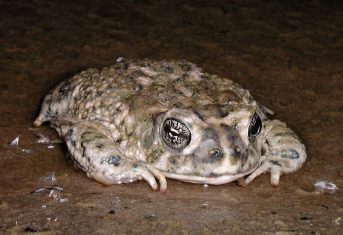Climate change’s impacts on sensitive aquatic species modeled for L.A. region

SCCWRP and its partners have completed a study examining how changing rainfall patterns and temperatures in the Los Angeles region stemming from climate change will impact sensitive aquatic species and habitats.
The 2-1/2-year study, completed in May, found that some species such as the endangered arroyo toad – which is dependent on specific seasonal rainfall patterns – are expected to be significantly impacted. Other species that are sensitive to changes in water temperature could be similarly impacted.
The study involved using regional flow ecology relationships to model how projected changes in rainfall and temperature patterns over the next century can be expected to impact sensitive biological communities, then use this information for developing watershed vulnerability maps.
The approach used in the study can now be replicated to model climate change’s long-term impacts on other regions of California.
More news related to: Climate Change, Ecohydrology